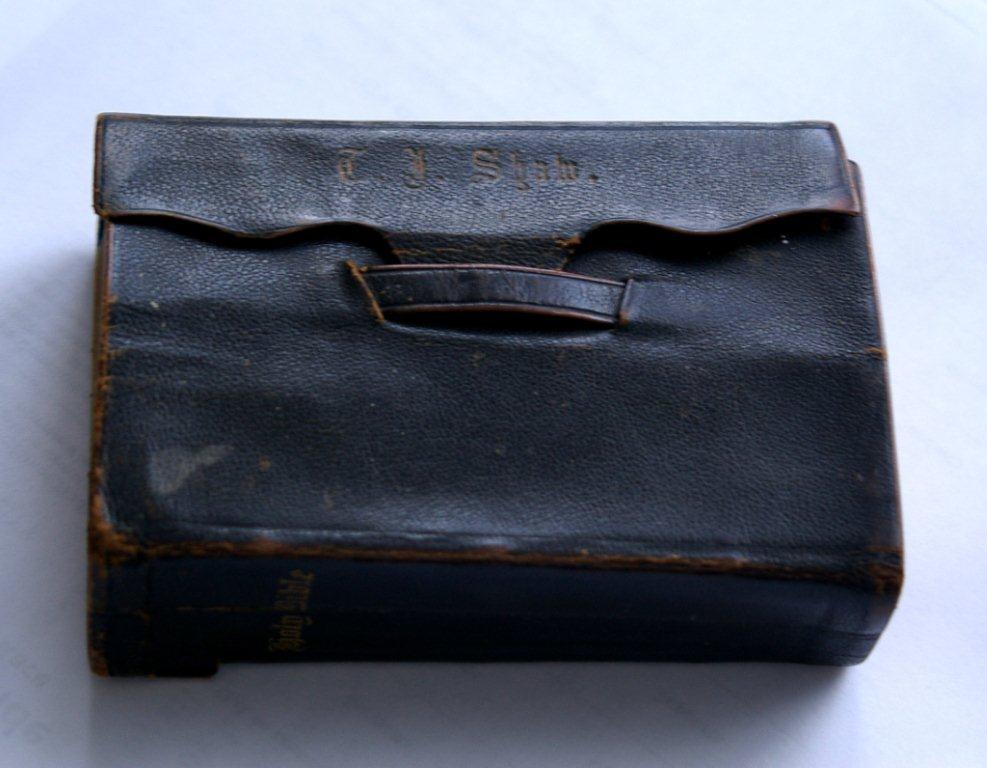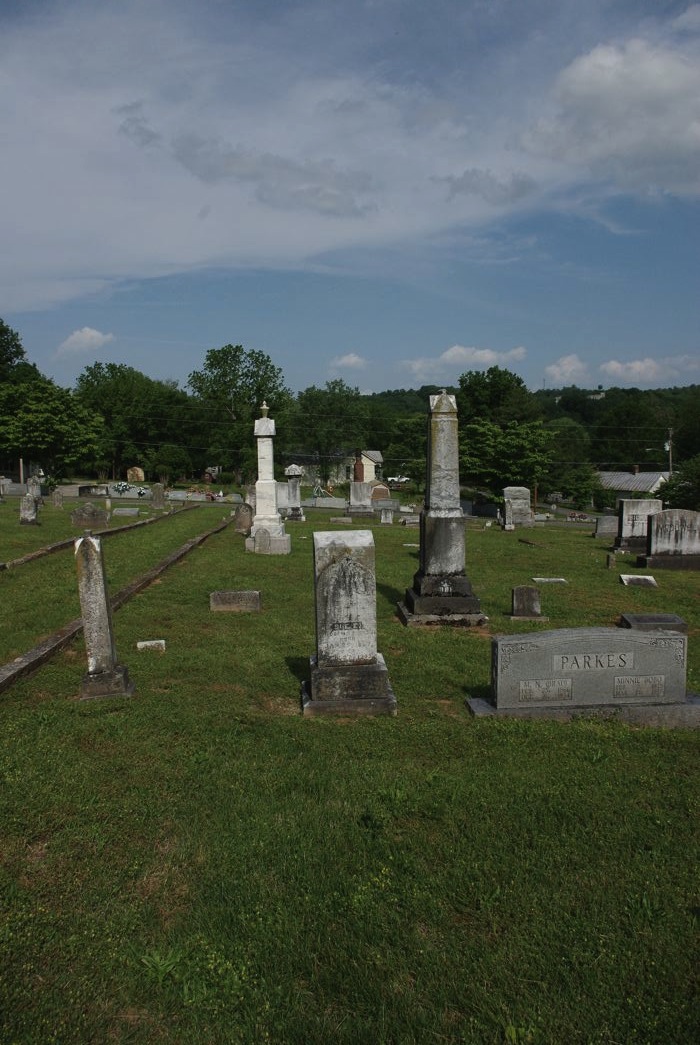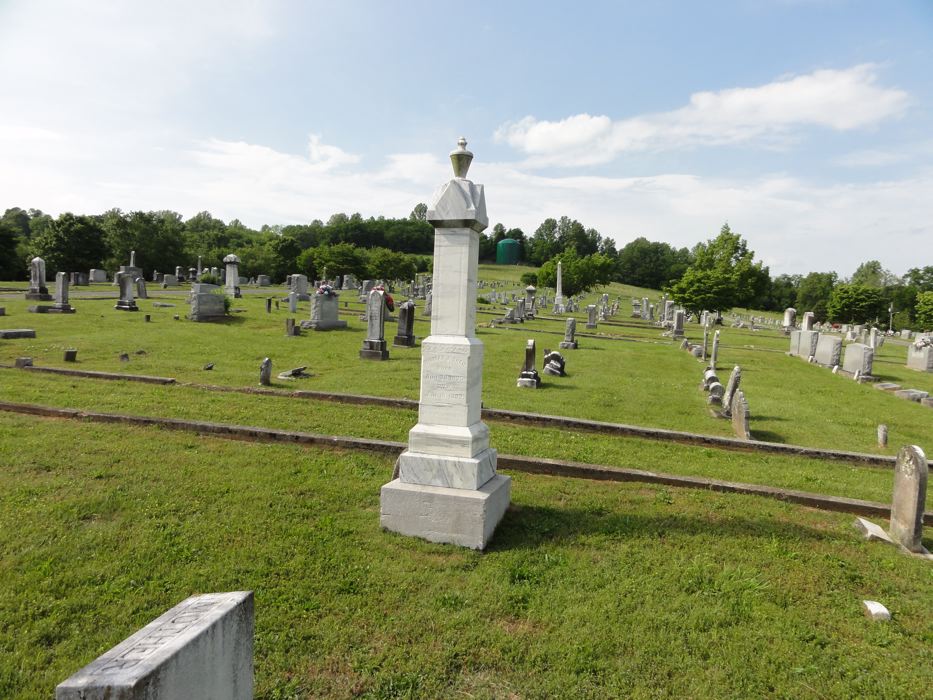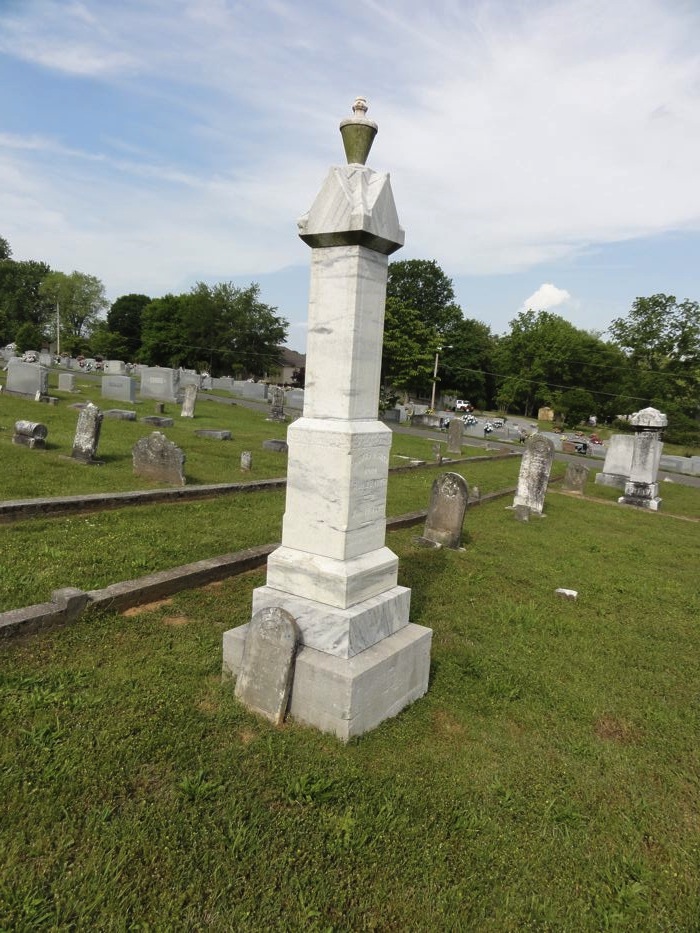Thomas J. Shaw
(1826-1922)
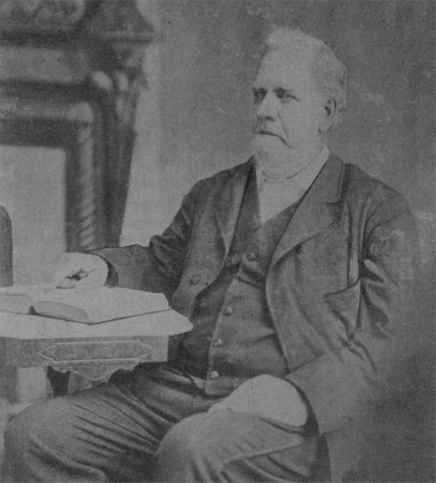
Biographical Sketch On The Life Of Thomas J. Shaw
According to history, what is now Moore County, Tennessee, was at one time a part of Lincoln County, Tennessee. Many years ago it was separated from Lincoln and, with sections from other counties, became an independent county. The village of Lynchburg became the county seat of the county. This village has developed into a prosperous town. On August 28, 1826, there was born a babe, which was named "Thomas J. Shaw." He spent his childhood days in the vicinity in which he was born, and his boyhood days were spent in the same place; and there he grew to manhood and passed the zenith of his life, and there he lived through the declining days and to the end. Thomas J. Shaw was born, lived, and died in the same community.
Thomas
J. Shaw was a simple-hearted, good man. He sowed no "wild oats" and
formed no dissipating habits. As a young man, he was known in his vicinity as a
clean, moral, upright man before he became a Christian. He measured fully up to
the high standard of good citizenship before he became a preacher of the gospel.
He was kind, sympathetic, and helpful as a neighbor, and was always found on the
right side of all questions that affected the society of his community. He
inherited a strong intellect and strong convictions on moral issues. He was
honest and upright, fair and just, in his dealings with his fellow men. He was
kind to the erring and sought to help them to turn from the error of their way.
When he became a Christian, he had a good foundation upon which to build a
Christian character.
Brother Shaw began to preach gradually. He did not care to be a public man or a preacher of the gospel, if he could fill his mission without it. It seemed that he was needed to take public part in the worship. His neighbors and friends had confidence in him and pressed him into service. He was willing to do what he could and all that he could for the glory of God and the service of man. Gradually he developed into a preacher of the gospel. He confined his labors to his native county and adjoining counties, and he found more work to do than he could do. During his day there were not so many gospel preachers as there are now; hence, be was kept busy all the spare time that he had preaching the gospel. He was not a professional preacher, but one who preached because people wanted to hear him and he wanted to proclaim the love of the Lord Jesus Christ in the salvation of souls.
Brother Shaw began preaching in 1849, when he was twenty-three years old. He felt that a preacher of the gospel should be a "pattern of good works." He knew that no man could have power and influence as a preacher very long unless his life coincided with his preaching. He was not one who would say, "Do as I say and not as I do." His life among his people was such that he could truly say: " Follow me, as I have followed Christ." He became an earnest, prayerful student of the Bible. He had no other book and wanted no, other book. He was determined to preach the word of God, and he could find that in the English Bible. He had but little education in the modern sense of that term, but he was well educated when it came to a knowledge of the Bible. He memorized much of the Old Testament and nearly all of the New Testament. Many thought that he could reproduce from memory the entire books of the New Testament. Any one who knew so much of the Bible and who conformed his life to his teachings would necessarily be a blessing to his generation.
Brother Shaw was original in his manner or method of preaching the gospel. He copied no man's sermons and imitated no preacher's gestures or postures in the pulpit. He knew the word of God, and he knew the people to whom he spoke, and he chose such a method as would reach their hearts with his message. He gave little attention to the rules of formal logic, but presented his sermon in a straightforward way so that his hearers could understand. He knew that he was speaking largely to men and women who were not trained to reason according to the laws of logic; but he knew how to impress their hearts with the truth of God, and this he did. His honesty and earnestness in handling the word of God impressed the people. He was neither afraid of man nor afraid to attack any of the religious errors prevalent in his community. He met error with courage and dealt with the wrongdoer with kindness. Such a man must have been a power for good in his community.
Brother Shaw divided the teachings of the New Testament into two great lessons, namely, how to become a Christian and how to live the Christian life. He put the greater emphasis in his preaching on how to become a Christian. It seemed that the citizenry of his community needed this lesson. They were so confused with the errors of denominationalism and the theories of the direct operation of the Holy Spirit that he studied the lessons on how to become a Christian. He said that people could read the New Testament and learn how to live the Christian life, but they were so blinded with error that they could not understand the truth about becoming a Christian. Brother Shaw baptized hundreds of people and established many congregations. The circumstances surrounding him were such as to bring him into controversy with the exponents of religious error. At that time every inch of progress made was contested by sectarians. When he established a congregation, the advocates of religious error sought to weaken the faith of the young disciples, and Brother Shaw would have to return and strengthen them in the faith by again going over the ground of their becoming Christians. His life was kept busy in this work and many battles were fought by him.
Brother Shaw received very little for his preaching. He did not preach for the money that he could get, nor for the praises of men. As he put the emphasis of his preaching on how to become a Christian, he and other preachers did not teach the church to support the gospel. This task was left for others. Brother Shaw taught the world from the Bible how to become Christians, and he showed them by his own life how to live as Christians. No preacher had more additions in that country than did he. Brother Shaw made no pretensions of oratory; he was not gifted as an orator; he had no powers of exhortation, though he was warm-hearted and kind; he never appealed to the sympathies of his hearers, nor did he in any way try to stir the emotions of his hearers. Wherein lay his power as a preacher? What was the secret of his success in having so many additions? The answer to these questions may be found in the fact of his wonderful knowledge of the Bible, his ability to quote with ease the Scriptures and give chapter and verse, and his strong faith in what he found taught in the Bible. The power was not in man, but in the gospel, which he preached. The influence that he had over others was due to the influence, which the word of God had over his life.
Brother Shaw died at his home near Lynchburg, Tenn., at 6 P.M., January 18, 1892. He had reared a family of ten children. He supported them and preached the gospel without support. Services were held in his honor by Brother J. D. Floyd in the church house at Lynchburg, January 20, 1892. His ashes rest in the cemetery of that town. He made a large contribution to the cause of Christ in giving a large family of children trained in the service of God, and he made another contribution in the consecrated life that he lived. The community in which he lived still has cause to thank God that Thomas J. Shaw lived there.
-From Biographical Sketches Of Gospel Preachers, H. Leo Boles, Gospel Advocate Company, Nashville, Tennessee, 1932, pages 212-217
Addenda: Shaw was known as, "the man with the book in his head." He taught and baptized many, but one noted man he baptized, who later became a great gospel preacher, was S.W. Womack, the father-in-law of Marshall Keeble.
![]()
T.J. Shaw's Bible
![]()
Directions To The Grave of Thomas J. Shaw
The city of Lynchburg, Tennessee is probably best known world-wide for its production of Jack Daniels Whiskey. The distillery is open daily for free tours to sight seers. However, our visit in December, 2001 was for a much greater, and far more fulfilling purpose, to find the final resting place of Thomas J. Shaw. This south-central Tennessee town lies 13 miles west of I-24 at Tullahoma on Hwy. 55. It is located about 18 miles northwest of Winchester, Tennessee on Hwy. 50, and about 15 miles northeast of Fayetteville, Tennessee. Coming in from Tullahoma the main road, Hwy 55, is called Majors Blvd. Go through the town's only traffic light and just ahead on the right will be a funeral home that corners on Morgan St. When you turn on Morgan St. you will notice the cemetery on the hill ahead of you. Go to the stop sign. Cemetery St. goes straight ahead, and Church St. goes to the left in front of the cemetery. Turn left on Church St. in front of the cemetery, and go over the rise to the first entrance on the right. Note that the sections are enclosed by curbing, with walkways between sections. Go to the second walkway and look to the left. The first grave facing you will be the "Setliff" family plot. Behind the Setliff graves five rows you will see Shaw's monument. Be sure to visit the grave of his brother-in-law, also a church leader, M.N. Moore.
GPS Location
35°17'06.4"N 86°22'38.4"W
or D.d. 35.285109,-86.377325
![]()
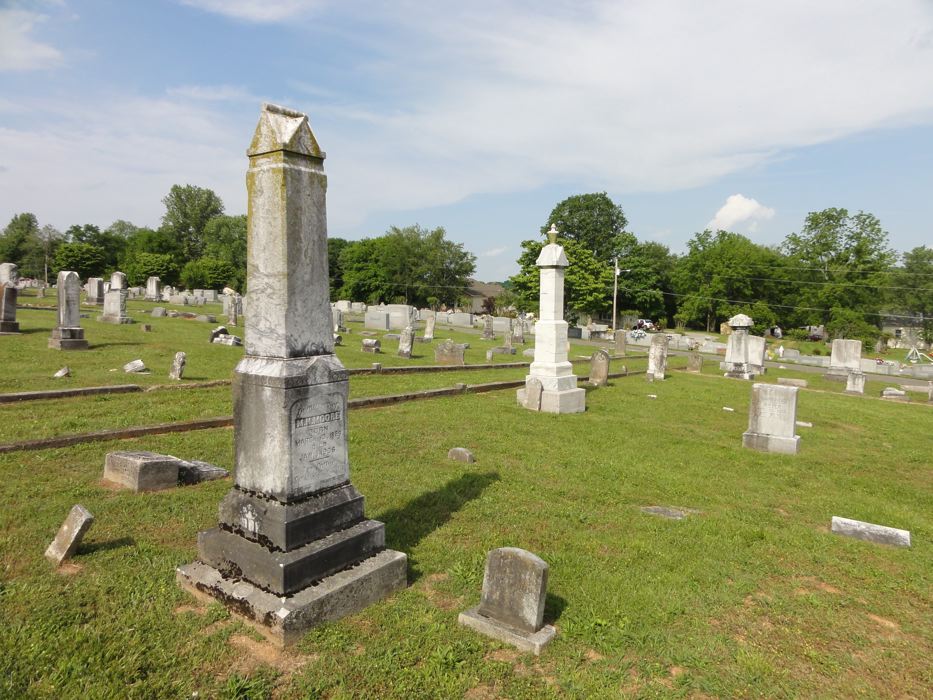
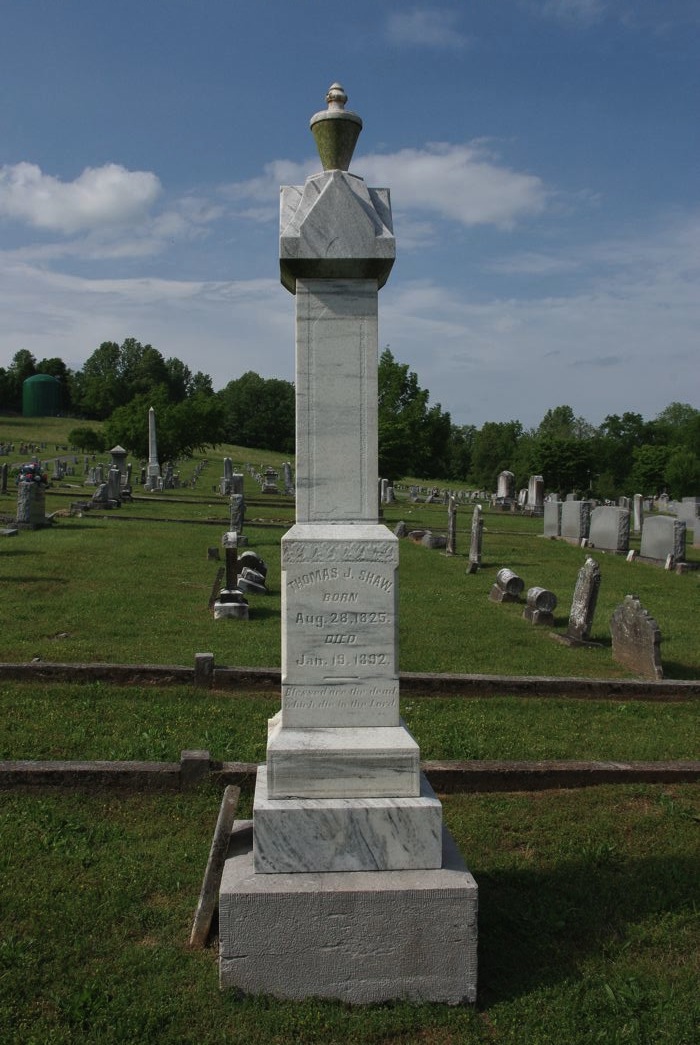
Thomas J. Shaw
Born
August 28, 1825
Died
January 19, 1892
Blessed are the dead
That die in the Lord
![]()
